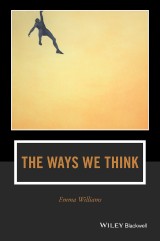Details

The Ways We Think
From the Straits of Reason to the Possibilities of ThoughtJournal of Philosophy of Education 1. Aufl.
|
21,99 € |
|
| Verlag: | Wiley-Blackwell |
| Format: | |
| Veröffentl.: | 14.12.2015 |
| ISBN/EAN: | 9781119129578 |
| Sprache: | englisch |
| Anzahl Seiten: | 272 |
DRM-geschütztes eBook, Sie benötigen z.B. Adobe Digital Editions und eine Adobe ID zum Lesen.
Beschreibungen
<p><i>The Ways We Think</i> critiques predominant approaches to the development of thinking in education and seeks to offer a new account of thought informed by phenomenology, post-structuralism and the ‘ordinary language’ philosophical traditions.</p> <ul> <li>Presents an original account of thinking for education and explores how this alternative conception of thought might be translated into the classroom</li> <li>Explores connections between phenomenology, post-structuralism and ordinary language philosophical traditions</li> <li>Examines the relevance of language in accounts of how we think</li> <li>Investigates the philosophical accounts of Gilbert Ryle, Martin Heidegger, John Austin and Jacques Derrida</li> <li>Draws upon experience of own teaching practice as philosopher-in-residence</li> </ul> <p> </p> <p> </p>
<p>Preface vii</p> <p>Acknowledgements xi</p> <p>1 Today’s Thinking: Following the Lines of Rationalism 1</p> <p>2 A Brief Detour: ‘Authentic’ and ‘Poetic’ Thinking 42</p> <p>3 ‘Ahead of All Beaten Tracks’: Ryle, Heidegger, and the Ways of Thinking 58</p> <p>4 A Way Beyond: Thinking Responsibly with Heidegger 89</p> <p>5 Following the Sign: Derrida and the Language of Thought 127</p> <p>6 Out of the Ordinary: Incorporating Limits with Derrida and Austin 158</p> <p>7 The Way Before the Way Before: Crossing Paths with Heidegger and Derrida 189</p> <p>8 A Weaving of the Ways: The Open Possibilities of Thought 220</p> <p>Bibliography 247</p> <p>Index 253</p>
<p><b>Emma Williams</b> is Assistant Professor in the Department of Education Studies, University of Warwick. She was previously Philosopher-in-Residence at Rugby School, where she taught Philosophy across the curriculum and helped develop interdisciplinary courses for the new A Level Qualification: The Extended Project. She has a background in Philosophy, particularly Post-Kantian European Philosophy, and the Philosophy of Education. Her work explores the themes of language, rationality and subjectivity within the context of education.</p>
<p><i>The Ways We Think</i> is concerned with the issue of developing thinking in education. It seeks to move beyond current predominant approaches, which take their cue from a limited conception of both the experience of thinking and the human being <i>who</i> thinks. This approached is referred to throughout the text as ‘rationalistic’, designating both its abstracted, disengaged conception of the human being, and its representational, intellectualised image of the ways we think.</p> <p>In order to offer a more adequate conception of thinking, the author investigates the philosophical accounts of Gilbert Ryle, Martin Heidegger, John Austin and Jacques Derrida. She argues that these thinkers provide accounts that strive to open up the ‘possibilities’ of human thought, both in the sense of revealing what makes thought happen and what happens when we think. The conclusion explores how thinking education might thereby be reconceived, in ways that are richer than rationalism and indicates how this alternative conception of thought might be translated into the classroom. The result is a method that provides new possibilities and new avenues for an education that takes its cue from the ways we think, in all its variety.</p>
<p>'The idea that children's learning outcomes will benefit from developing their potential as independent, critical thinkers is something of a truism. The prevailing conception of critical thinking in educational theory can seem equally truistic: it concerns the acquisition of more or less formal "transferable skills", and “dispositions” that the properly formed critical thinker can put to use in any domain of inquiry. In this bold and original book Emma Williams convincingly shows that this conception of critical thinking is anything but a common-sense understanding of ourselves as thinking beings, but is deeply rooted in the intellectualist and rationalist tradition of modern Western philosophy. While that tradition foregrounds an instrumental and technological vision of thinking, and a disengaged and representational model of human inquiry, Williams champions a phenomenological account of human thinking that attempts to do justice to it as at once responsive, receptive and contextual, and productive, creative and open.'<br /><br /><b>Simon Glendinning, </b>Professor of European Philosophy, European Institute, LSE</p>

















